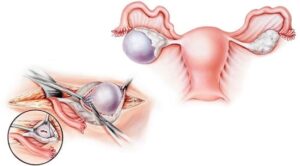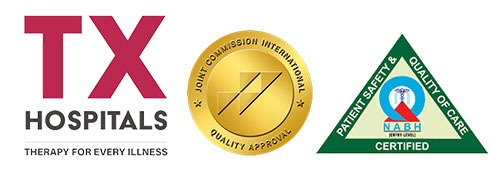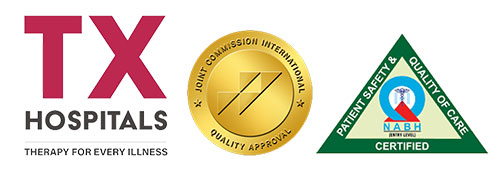Ovarian Cyst Removal Surgery in Hyderabad

What is Ovarian Cyst Removal Surgery?

Why is Ovarian Cyst Removal Surgery Performed?
- Symptomatic Cysts: Large cysts can lead to significant discomfort, pain, bloating, or pressure on nearby organs, necessitating surgical intervention.
- Risk of Rupture: Cysts that are at risk of rupturing, especially those with a diameter exceeding 5 centimetres, are typically removed to prevent complications such as internal bleeding or infection.
- Cancer Concerns: In cases where there is a suspicion of ovarian cancer or the presence of complex cysts, surgical removal may be necessary for further evaluation and treatment.
Prepare for Ovarian Cyst Removal Surgery
- Consultation and Evaluation: Your gynaecologist or surgeon will evaluate your medical history, perform a physical examination, and order additional tests such as ultrasounds or blood work to determine the extent of the cyst and the most appropriate surgical approach.
- Preoperative Instructions: You may be instructed to refrain from eating or drinking for a certain period prior to the surgery, based on your surgeon’s guidelines.
- Medication Management: Inform your healthcare provider about any medications, supplements, or herbal remedies you are taking, as they may need to be adjusted before the surgery.
- Arrangements and Support: Make sure to arrange for transportation to and from the hospital, and consider having someone accompany you for support during the procedure and recovery period.
More About Ovarian Cystectomy Surgery
- Laparoscopic Approach: Laparoscopic cystectomy Surgery is a minimally invasive procedure where small incisions are made, and a laparoscope (a thin, lighted tube) is inserted to guide the surgeon in removing the cyst. This technique typically results in shorter recovery times and reduced scarring compared to open surgery.
- Open Surgery: In certain cases, such as when the cyst is too large or complex for a laparoscopic approach, traditional open surgery may be required. This involves a larger incision in the abdomen, allowing the surgeon direct access to the ovaries for cyst removal.
Consequences of Delaying Ovarian Cyst Removal Treatment
- Increased Pain and Discomfort: Delaying surgery can prolong the Ovarian Cyst symptoms associated with ovarian cysts, such as pelvic pain, abdominal discomfort, and bloating.
- Rupture and Complications: Larger cysts carry a higher risk of rupture, potentially leading to severe pain, internal bleeding, infection, or the formation of adhesions (scar tissue).
- Impact on Fertility: Some ovarian cysts can interfere with fertility, and delaying their removal may further hinder the chances of conceiving naturally.
- Progression of Cancer: If a cyst is suspected to be cancerous and left untreated, it can progress and potentially spread to other parts of the body, making it more difficult to treat effectively.
Frequently Asked Questions (FAQs)
Ovarian cyst removal surgery, also known as ovarian cystectomy, is a surgical procedure performed to remove cysts that develop on or within the ovaries. It may be done through traditional open surgery or minimally invasive laparoscopic surgery.
The duration of ovarian cyst removal surgery varies depending on factors such as the size and complexity of the cyst and the chosen surgical approach. Generally, the procedure can take anywhere from 30 minutes to a few hours.
Like any surgical procedure, ovarian cyst removal surgery carries certain risks. Potential complications may include bleeding, infection, damage to nearby organs, formation of scar tissue (adhesions), and, in rare cases, injury to the ovaries. It’s important to discuss these risks with your surgeon prior to the procedure.
Recovery time can vary from person to person, but generally, the recovery period following ovarian cystectomy is relatively short. In laparoscopic surgery, most individuals can resume normal activities within a few days and return to work within a week or two. Open surgery may require a slightly longer recovery time.
There is a possibility of cysts recurring after surgery. However, the chance of recurrence depends on various factors such as the type of cyst, underlying conditions, and individual health. Your surgeon can provide more information about your specific case and discuss any preventive measures that can be taken.
Remember, it’s important to consult with a healthcare professional for personalized advice and answers to any specific questions or concerns you may have about ovarian cyst removal surgery.







